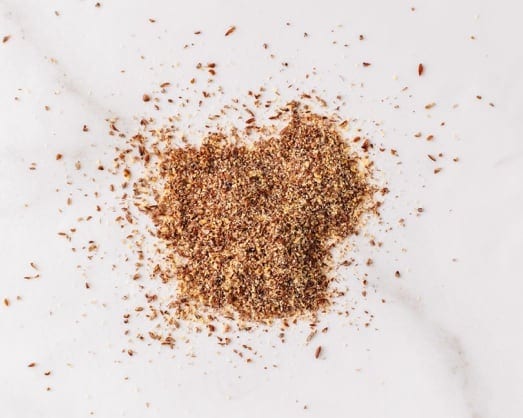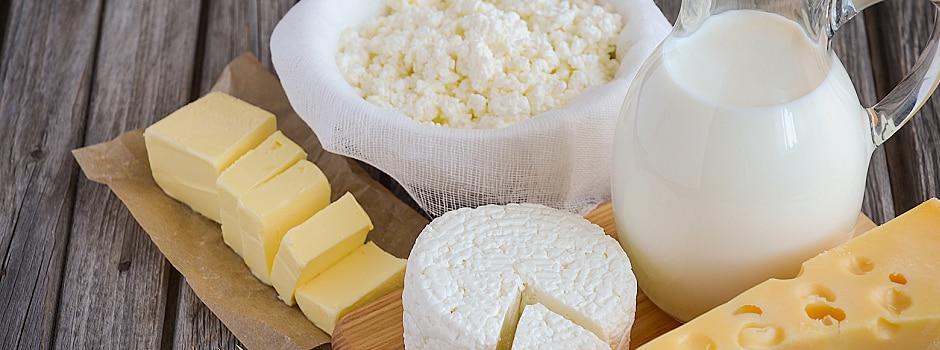The holiday season is approaching, it's time to bake!
It's no secret that vegan baking can get a bit tricky for those who are unfamiliar with plant-based substitutions. You need to replace milk, butter, eggs, and any other animal-based products in traditional recipes.
But no need to worry! With all the plant-based options out there, “veganizing” your favorite holiday treats has never been easier. Once you learn what to swap in, it becomes much easier to make vegan recipes.
However, it's important to note that certain vegan substitutions may work for some recipes and not for others. For example, applesauce might be a great egg replacer in cookie and muffin recipes, but may not work as well in pancake recipes. Mashed bananas might be a great egg replacer in pancake recipes but may not work as well in other recipes.
Baking really is a science. Ingredients react and interact with each other in different ways. So let's take a step back to understand what milk, butter, and eggs actually do in baking before diving into substitutions.
What do milk, butter, and eggs do in baking?
When transitioning to a vegan diet, most people feel they have to give up some of their favorite dishes, especially baked goods, because of how much those recipes rely on milk, butter, and eggs.
But what exactly do those ingredients do?
Milk is known for softening, moistening, and adding flavor to baked goods.
Butter is known as the best fat for baking and is especially known for adding flavor. Not to mention, it also helps in leavening and adds moisture to baked goods.
Eggs are probably the most versatile basic baking ingredient. Not only are they a leavening agent, but they also act as a binder, holding the finished product together.
On the downside, these ingredients also add high levels of saturated fats and cholesterol to our baked goods. So how can we replace them?
Substituting Milk
If a recipe calls for regular dairy milk, try using an equal amount of unsweetened almond milk, cashew milk, soy milk, oat milk, coconut milk, or any other non-dairy milk. Most have similar textures, so feel free to pick any non-dairy milk that will complement the taste of the recipe you're making! I like using almond milk in nuttier recipes, like these Cookie Dough Protein Bars, and cashew milk in creamier recipes, like this Raw Snickers Pie.
Note that soy milk is the most popular among bakers, due to its thickness and high-protein content, and rice milk is probably the least popular because of its thinness.
To replicate buttermilk, Add 1 tablespoon of lemon juice or apple cider vinegar to 1 cup of non-dairy milk. The acid helps curdle the non-dairy milk and voila!
Another non-dairy milk to consider is full-fat, canned coconut milk. Canned coconut milk is THE secret to making delicious vegan ice creams, like this Pistachio Ice Cream.
To replicate cream, coconut cream from full-fat, canned coconut milk makes a great substitution. This stuff is amazing! It's great for making whipped cream in recipes like this Pumpkin Pie. All you have to do is chill a can of full-fat coconut milk for at least 24 hours, open it and scoop out the thick cream. Note that each brand has a different texture-some work, some don't. You want to look for a texture that feels like slightly softened butter when scooping it out of the can. If it's too firm, it won't separate properly. If it's too soft, it won't hold. My personal favorite brand that never fails me is Nature's Charm Coconut Whipping Cream.
Substituting Butter
For recipes that call for regular butter, try using vegan butter instead, especially for those recipes that need that "buttery" feel, like pie crusts, crumble toppings, or these Cinnamon Rolls.
I definitely recommend reading labels, though. Some brands of vegan butter are much healthier than others. My favorite in terms of ingredients and flavor is Miyokos Cultured Vegan Butter.
Coconut oil also works pretty well as a butter substitute, but not always. Try using coconut oil in recipes for cupcakes, muffins, waffles, and pancakes, like these Lemon Poppyseed Pancakes.
Substituting Eggs
If a recipe calls for eggs, as most do, there are several alternatives you can try. Note that when a recipe calls for more than 3-4 eggs, substitutions don’t always work, and the recipe may have to be altered.
Aquafaba
Aquafaba is the liquid you find in a can of chickpeas, and boy is it amazing for replacing egg whites! You can whip it using a hand-mixer to make recipes like marshmallow fluff, meringues, macarons, and pavlovas.
Try this recipe: No-bake Mallomars
Flaxseed

Substitute flax meal (ground flaxseeds) with water in place of eggs in some baking recipes. To substitute 1 egg, whisk 1 tablespoon of flax meal (ground flax) with 3 tablespoons of water in a small bowl, and leave it to gel at room temperature for approximately 15 minutes.
Note: you don't want to use flax eggs when a recipe requires more than 2-3 eggs.
Try this recipe: Vegan Cinnamon Toast Crunch
Applesauce
For baked goods that you want to be moist and tender (e.g. chocolate chip cookies or pumpkin muffins), you can try 1/4 cup applesauce to substitute 1 egg.
Note: you don't want to use applesauce in recipes that require more than 2-3 eggs. Using too much applesauce may cause your baked goods to become mushy.
Try this recipe: Chocolate Chip Cookies
Banana
This starchy fruit is a great substitute for eggs in recipes like pancakes or waffles. Mash 1/2 of a medium banana to substitute 1 egg.
Note: The ripeness of the bananas will affect the sweetness and flavor of your recipe. Ripe bananas will add a more distinctive sweet banana flavor, while under-ripe bananas will yield the opposite result. You may need to reduce the amount of sugar used in the recipe if you decide to use very ripe bananas.
Try this recipe: Banana Waffles
So? Going vegan doesn't mean you have to give up any of your favorite dishes! It all comes down to understanding the properties of certain ingredients, and getting a feel for how everything works together.
There’s always a way to “veganize” a recipe.
So, what are you waiting for? Let’s start baking!
